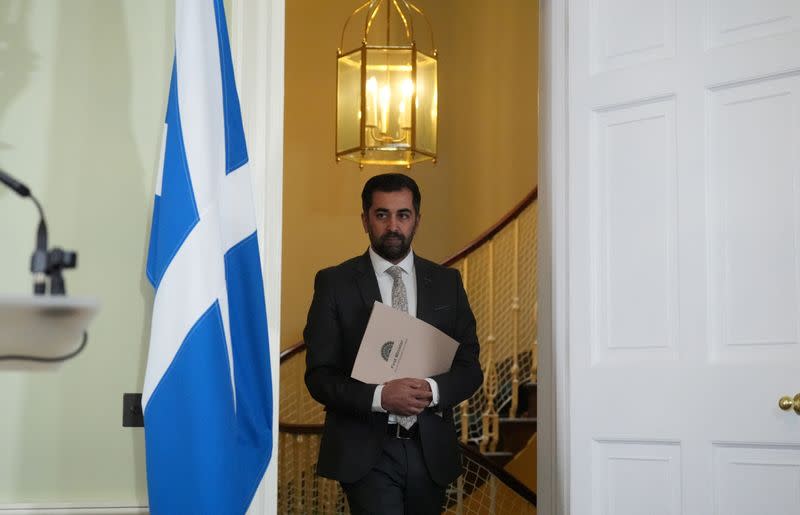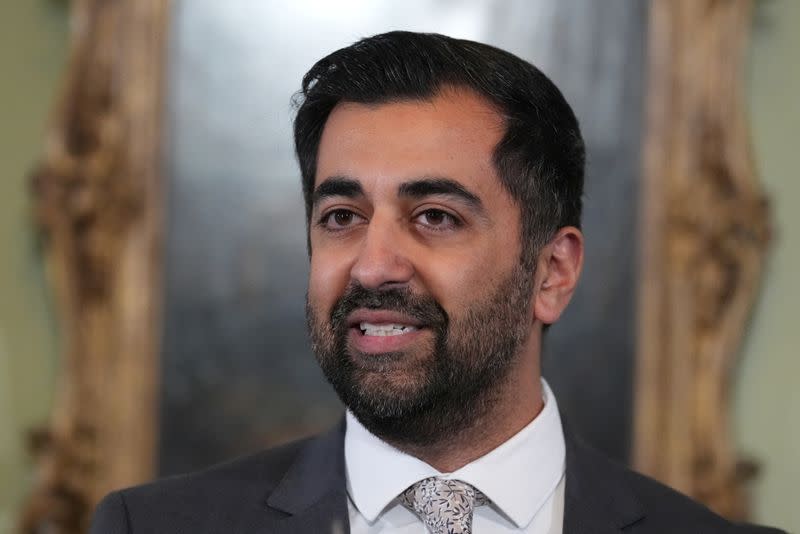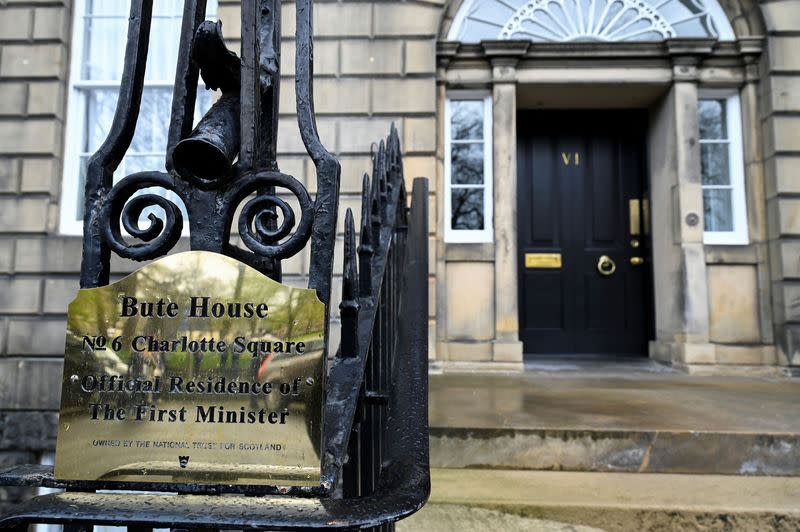Scotland's Humza Yousaf quits, boosting Labour before UK vote
(Tightens throughout, removes extraneous name in byline.)
By Alistair Smout and Andy Bruce
LONDON (Reuters) -Scotland's leader Humza Yousaf resigned on Monday, further opening the door to the UK opposition Labour Party regaining ground in its former Scottish heartlands in a national election expected to be held later this year.
Yousaf is quitting as head of the pro-independence Scottish National Party and first minister of Scotland's devolved government after a week of chaos triggered by his scrapping of a coalition agreement with the Green Party.
He then failed to secure enough support to survive a no-confidence vote, expected later this week.
"I've concluded that repairing our relationship across the political divide can only be done with someone else at the helm," Yousaf said, resigning a little over a year since he replaced Nicola Sturgeon as first minister and SNP leader.
He said he would continue until a successor is chosen in an SNP leadership contest.
The party is losing popular support after 17 years of heading the Scottish government, following a funding scandal and the resignation of Sturgeon as leader last year.
This month, polling firm YouGov said Labour overtook the SNP in voting intentions for a Westminster election for the first time in a decade, raising the prospect of a reversal of the tide that swept most of Scotland's seats in the UK parliament to the SNP in recent elections.
Labour's resurgence in Scotland adds to the challenge facing British Prime Minister Rishi Sunak's Conservative Party, which is lagging far behind Labour in UK-wide opinion polls.
LEVEL OF HURT
Yousaf, the first Muslim head of government in modern Western Europe, abruptly ended a power-sharing agreement between the SNP and the Green Party after a row over climate change targets. There has also been infighting over how progressive its pitch should be as it seeks to woo back voters.
Caught between defending the record of the coalition government and some nationalists' demands to jettison gender recognition reforms and refocus on the economy, Yousaf was unable to strike a balance that would ensure his survival.
He said he had "underestimated the level of hurt" he caused the Greens by ending their alliance but was "not willing to trade my values and principles" to retain power, in an apparent swipe at the SNP's rival pro-independence Alba Party.
Alba lawmaker Ash Regan - who acrimoniously left the SNP last year - had demanded a reassessment of the Scottish government's gender self-identification policies in exchange for backing Yousaf in a confidence vote.
The Scottish parliament now has 28 days to choose a new first minister. If the SNP's new leader is unable to command support in parliament, a Scottish election will be held.
Scottish Labour said the SNP should call an election rather than appoint a new first minister without the say of the broader public. But the Greens said they would oppose efforts to trigger an early election.
Former SNP leader John Swinney said he was considering standing for SNP leader, with Yousaf's former leadership rival Kate Forbes also seen as a possible successor.
(Reporting by Alistair Smout, Andy Bruce, William James, Farouq Suleiman and Sarah Young; Editing by William Schomberg, Bernadette Baum and Jonathan Oatis)

 Yahoo News
Yahoo News 




